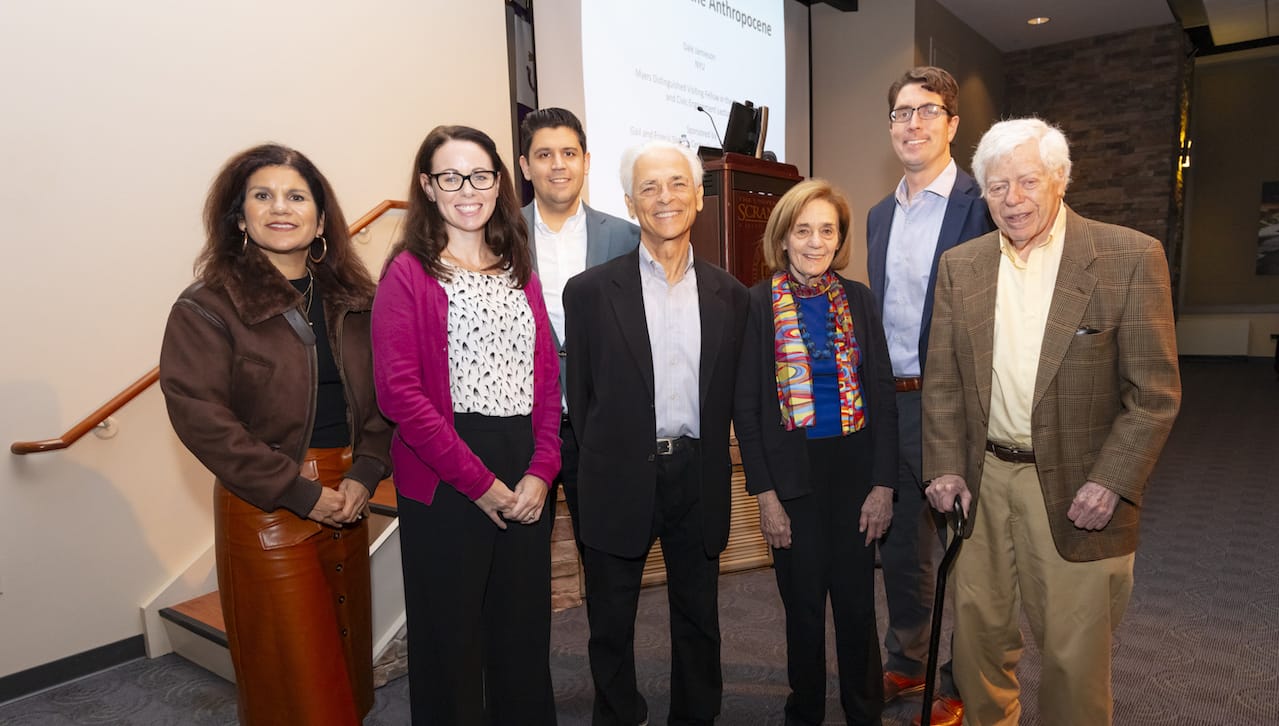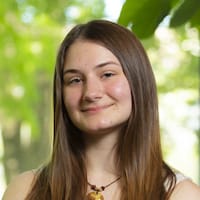Living in the Anthropocene Discussed at Scranton

By Bethany Belkowski ’24, student correspondent
On October 17, the Schemel Forum collaborated with the Gail and Francis Slattery Center for the Ignatian Humanities to present the Myers Distinguished Visiting Fellow in the Humanities and Civic Engagement Lecture by Dale Jamieson, Ph.D., director of the Center for Environmental and Animal Protection at New York University. Dr. Jamieson, a scholar of environmental ethics and animal rights, and an expert on contemporary climate change discourse, presented a program titled “How to Live in the Anthropocene.”
Dr. Jamieson defines the Anthropocene as the unit of time in which human activity has dominated and subsequently impacted earth’s fundamental systems, including its climate and ecosystems. Of humanity’s impacts on the earth, Dr. Jamieson illustrated that most have been negative, specifically pointing to the human-precipitated problems of rising temperatures, damaging alterations to the hydrological cycle, and massive decreases in biodiversity. Dr. Jamieson argued from the perspective of a realist, recognizing that humanity will face catastrophe as a result of centuries of environmental degradation, but with a collective effort, humanity can hope to bring about a less severe catastrophe.
In order to mitigate the environmental catastrophe humanity will inevitably endure, Dr. Jamieson first explained that people must accept the damage already done to the world. He pointed to Hurricane Katrina, the Australian Bush fires, and flooding in Scranton this past summer as examples of climate change-related occurrences that cannot be undone. Dr. Jamieson emphasized this point saying, “we have to accept that the world has changed…. Our inaction in the past has already committed us to centuries of environmental change.” In fact, he noted that each irreversible environmental event serves as a warning for what is more to come.
After acknowledging the damage done, Dr. Jamieson urged listeners to understand the “drivers” of climate change. He specifically drew attention to factors like affluence and the growing use of raw materials as two drivers of CO2 consumption. To combat additional damage to the environment, he encouraged listeners to do their part by attending environmental demonstrations, voting for officials who promote environmentally beneficial policies, opting for vegan meals when possible, and finding greener ways to move from place to place. He also highlighted the importance of learning from nature, especially its ability to be resilient, a quality Dr. Jamieson assured humanity would need in the wake of climate catastrophe.
Lastly, Dr. Jamieson expressed that all people must live with dignity, grace, and love, as love removes people from our narcissism and allows them to seek community in troubling times. He urged listeners to understand that people affect all other forms of life and that humanity needs to work with the environment rather than seek domination over it.
“We’re now going to have to fall back, I think, on these more general purpose resources of love, collaboration, [and] simple justice to try to survive this period,” said Dr. Jamieson, closing his discussion on how to best reduce the severity of inevitable environmental catastrophe.
In a somber conclusion, Dr. Jamieson explained to the crowd that not every message about the environment can or should be about hope. It is important to see reality. He continued, stressing the importance of recognizing and accepting tragedy and loss in order to act. Before taking questions, he identified the key to actively opposing further damage to the environment: not adaptation, but resilience.
Named for Schemel Forum founding director Sondra Myers and her husband, the Sondra and Morey Myers Distinguished Visiting Fellowship in the Humanities and Civic Engagement advances the University’s efforts to bring renowned scholars, artists and thinkers to Scranton to share their work and enrich cultural and civic activity at The University and in Scranton.







